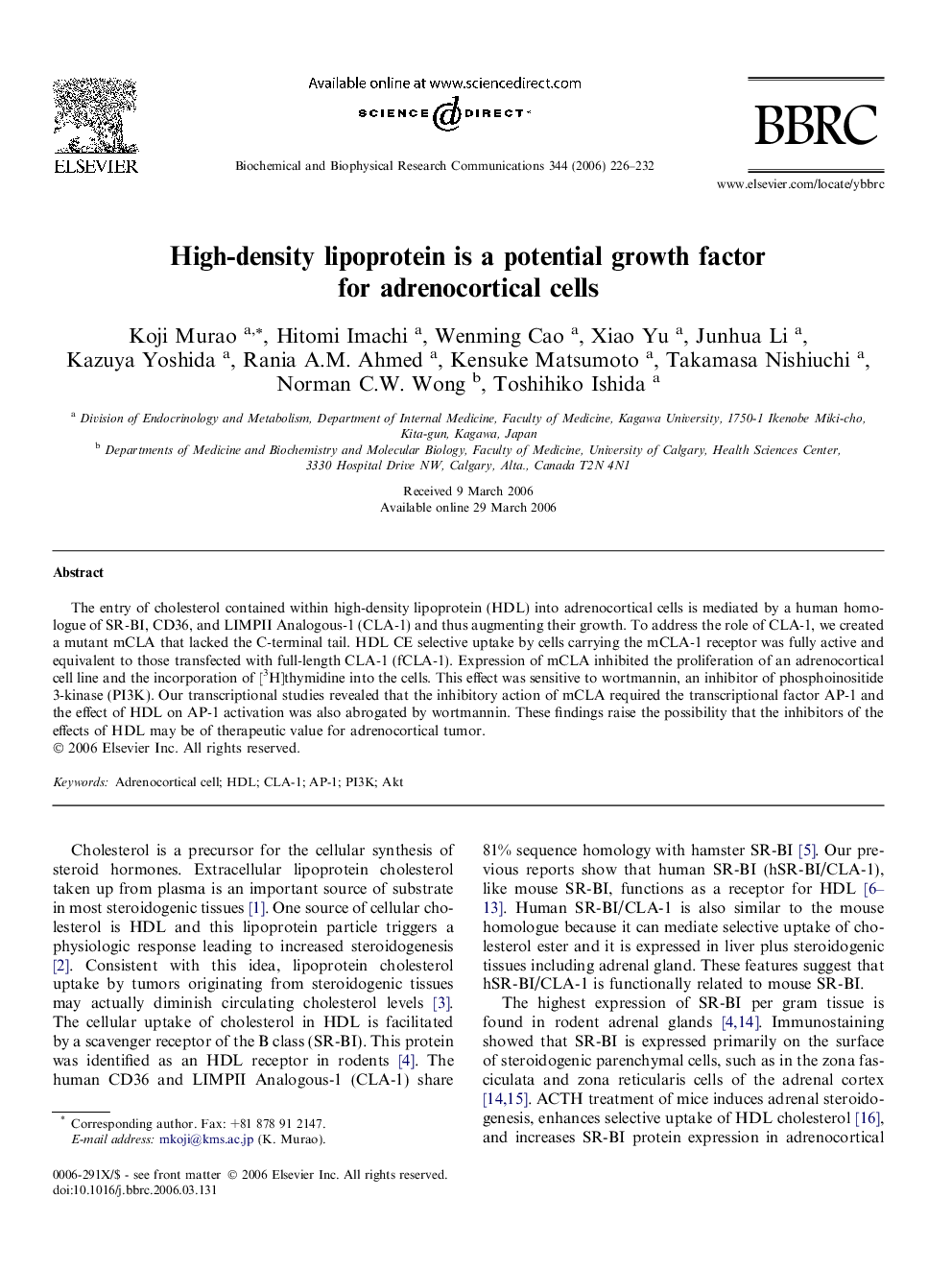| Article ID | Journal | Published Year | Pages | File Type |
|---|---|---|---|---|
| 1941184 | Biochemical and Biophysical Research Communications | 2006 | 7 Pages |
The entry of cholesterol contained within high-density lipoprotein (HDL) into adrenocortical cells is mediated by a human homologue of SR-BI, CD36, and LIMPII Analogous-1 (CLA-1) and thus augmenting their growth. To address the role of CLA-1, we created a mutant mCLA that lacked the C-terminal tail. HDL CE selective uptake by cells carrying the mCLA-1 receptor was fully active and equivalent to those transfected with full-length CLA-1 (fCLA-1). Expression of mCLA inhibited the proliferation of an adrenocortical cell line and the incorporation of [3H]thymidine into the cells. This effect was sensitive to wortmannin, an inhibitor of phosphoinositide 3-kinase (PI3K). Our transcriptional studies revealed that the inhibitory action of mCLA required the transcriptional factor AP-1 and the effect of HDL on AP-1 activation was also abrogated by wortmannin. These findings raise the possibility that the inhibitors of the effects of HDL may be of therapeutic value for adrenocortical tumor.
